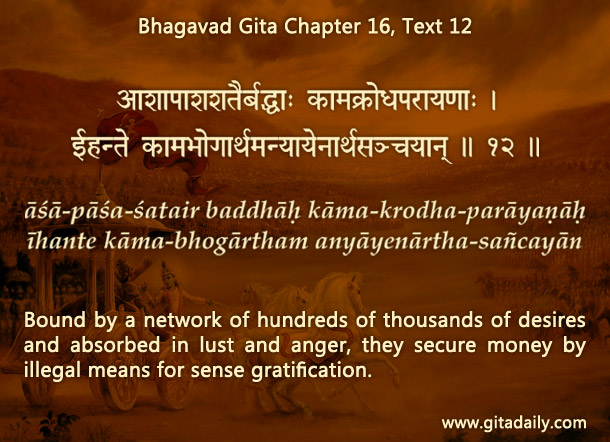Our materialistic society sets before us worldly goals such as sensations, relations, positions or possessions. Because the number of people seeking these goals is so high, the ensuing competition often resembles a rat race.
In this race, we frequently end up losers. But even if we win, what comes next? We feel elated, but that feeling is distressingly short-lived. Soon, the materialistic culture impels us to race towards some other goal. Even if we achieve that goal, it too turns out to be a letdown. Why? Because the culture makes us believe that happiness lies out there, in proving that we are better than others as per prevailing conceptions of who is the best.
Win or lose, as long as we remain in the rat race, we remain rats. The Bhagavad-gita (16.11) outlines the materialistic mentality that getting worldly things is life’s defining purpose. The next verse (16.12) stresses that such people remain bound in a network of unlimited desires.
Of course, while living in a competitive society, we can’t avoid competition. But we can avoid letting our status in that competition define our self-worth. Isn’t our life meant for something better than the fleeting elation of being the best rat in a glamorized rat race?
Yes, answers Gita wisdom.
We are meant to realize our identity as spiritual beings and relish the deep satisfaction that comes by developing our devotional connection with Krishna, whose parts we are eternally. Thereafter, we can use our God-given talents for making constructive contributions. We can help build a better world, a world where people can better access inner spiritual fulfillment.
Thus, the Gita helps us find purpose and joy not in proving that we are better than others, but in sharing with them the better life of outer contribution and inner satisfaction.
To know more about this verse, please click on the image
Explanation of article:
Podcast:


KRISHNA BHAKTI directs you to avoid the rat race